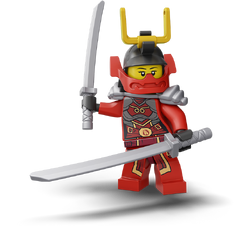If I have a child I hope to one day turn to them and say
"You are not fixed. You are not permanent. You are not a full stop, you are a continuous line. You have permission to change. Change again and change again."
It's the most important lesson I've ever had.
When I left university I thought that person was who I was set to be forever. "Learning is done now! Education has happened! Now you get a job and things are the same forever and ever."
I thought that all my flaws of bitterness and sarcasm at sixth form were who I was.
I thought that my insecurities would always hold me back.
But now I am stronger than I ever was. I am mighty. I am better than I ever was.
"Who'm I better than? I'm better than I used to be,
I'ma keep on getting better so you better just get used to me"
I grew more than I ever expected. As I joke about my pixie cut, or wearing lipstick these things are symptons of something else. Of being who I've always wanted to be. I can wear my silver shoes and dress like a cyborg because I'm no longer afraid to stand out and be noticed. If you want to hurt me because you see me I will fight you back.
I am changing the world.
I became a little less selfish, a little more self aware, and whole lot more self confident.
As I thought about this, I built a theme of giving myself permission.
Permission to be beautiful
Permission to be bi
Permission to be wrong
Permission to be right
Permission to be right
Permission to be a campaigner
Permission to be depressed
Permission to be cool
Permission to be ill
Permission to change and change and change.
Permission to be depressed
Permission to be cool
Permission to be ill
Permission to change and change and change.
I have held myself back on all of these over and over, with the concept that I wasn't cool enough, or I hadn't done X things in order to fit into these categories. For every single one of these I built an Imposter Syndrome, a sense that I was never enough.
And it's messed up. I didn't even see myself as ill enough to see a doctor at times - I would literally say to my husband "there are people who need a doctor more than me". I wouldn't do obvious basic things to make life better because I was never enough.
And this year I saw messages like this:
And it's messed up. I didn't even see myself as ill enough to see a doctor at times - I would literally say to my husband "there are people who need a doctor more than me". I wouldn't do obvious basic things to make life better because I was never enough.
And this year I saw messages like this:
You don't need anyone else's confirmation to give your own labels.
I saw so much beautiful stuff on tumblr, little text posts that changed my world.
And this year, I'm taking charge. I'm fixing the things that are wrong. I'm going to get therapy.
I've taken initiative to go and talk at a conference on a campaign issue I'm passionate about. I have confronted my boss about sexism. I have taken on leadership roles. I have fought with all my passion and I have made things change.
I have made white men in charge who run their NGOs and their communities listen and change their language and their framing. Become more inclusive and intersectional. To tilt their heads and something in them switches as they too accept that same lesson: You are not fixed. You can do something new.
It feels great.
______________
At the start of last year on Twitter I said something stupid – I said that sometimes I was afraid to speak about feminism for fear of being shouted at for saying something wrong. And someone responded in a way that hurt me: they said that maybe I shouldn’t speak at all then. Maybe it was time I listened. I raged and I sulked, but then I did. I decided to listen.
I decided to try to listen to the feminists I was afraid of, to the anger. To listen to issues that weren’t in my spaces, to trans rights and racism especially. And over the year my knowledge of another world of problems grew. I became sick with hearing about black people being killed by police, and of abuses of refugees. Where I barely knew anything about what ‘trans’ meant, I found myself angrily defending their right to womens' spaces. And that all came from listening first. So thank you for the criticism.
_____________
In amongst all the listening people said a lot of things that really resonated with me and I became aware of a politics of self-love. That isn't a politics of 'I'm right and other people should know so' but a way of accepting who I am.
So this is the outcome one year of self-love.
I recommend it.
You are not fixed.















































